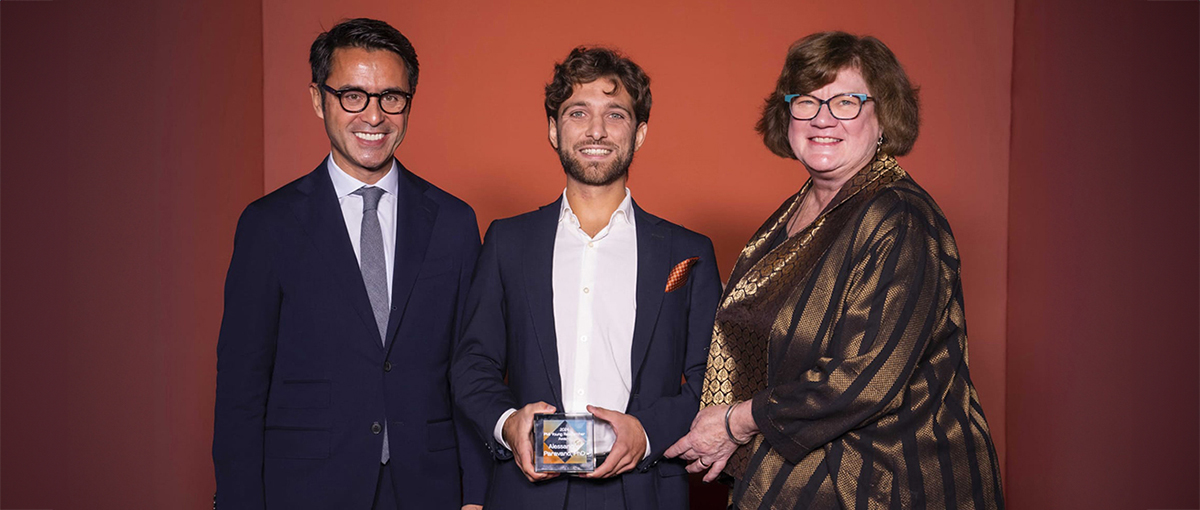award premio space economy
Alessandro Paravano has been awarded with “PMI Young Researcher Award 2024”

At the Project Management Institute Global Summit 2024 in Los Angeles, the largest in-person signature event of the year for project professionals dedicated to elevating our world through project success, with over 4,000 attendees, Alessandro Paravano was awarded the prestigious PMI Young Researcher Award.
The PMI Young Researcher Award, an annual global award based on a rigorous and competitive selection process, recognises and celebrates emerging leaders in the academic field of project, programme and/or portfolio management with potential achievements that have the potential to significantly impact the discipline and practice of project management.
The PMI committee recognised that the research of Alessandro Paravano, a Post-Doc at the POLIMI School of Management at the Politecnico di Milano, is outstanding for its rigorous contribution to the theory and practice of project management, amply documented in peer-reviewed papers. His ability to bridge the gap between theoretical advancements and their successful implementation in practice demonstrates his exceptional capacity to contribute to both academic knowledge and industry success.
The research makes significant contributions to the fields of project management and space economics by advancing the understanding of complex project value. Traditionally, project value has been assessed at the individual project level, focusing on short-term outcomes and direct economic returns for stakeholders. The author redefines and extends the project success conceptualisation, by shifting the focus to project ecologies, which consider the interconnectedness of projects and the broader context they inhabit. This shift enables a more comprehensive understanding of the long-term socio-economic transformations that complex projects, particularly in the space sector, can catalyse.
The study expands the traditional view of project success to include both tangible and intangible forms of value.
For instance, the value of complex space projects in responding to global challenges is explored and demonstrated like climate change through satellite technology or to advance human knowledge by studying life in extreme conditions. His research highlights how the value generated by these projects extends well beyond their immediate financial impact, creating lasting societal benefits.
The approach of the study is grounded in Value Theory and Systems Architecting, which allows him to analyse the dynamic and multidimensional nature of project value. He underscores the critical role of relationships between actors within project ecologies—such as stakeholders, end-users, and organisations—and how these relationships shape the evolving value of a project over time. This perspective challenges the traditional project management focus on individual project success metrics, advocating for a broader view that captures the transformative potential of projects at an industry or societal level.
Furthermore, the research provides novel insights into the Space Economy, a rapidly growing sector driven by technological innovation, commercialisation, and new stakeholders. He contributes to the limited academic literature in this domain by demonstrating that space projects, often seen through a technical or economic lens, hold the capacity to transform industries, enhance human life, and even reshape societal structures in the long term. This work thus bridges the gap between theoretical research and practical application, offering policymakers and industry leaders new tools to assess better and leverage the value of complex space projects.
More details: https://www.pmi.org/about/awards/research-academic





